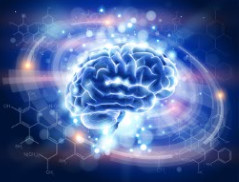Author: DynamicBrain Inc.
Publication: Monthly Newsletter
Published Date: November 22, 2022
Brain speed is the signature deficit of aging, as our Dr. Merzenich explains it. This means that, if we’re slower in thinking and responding, can’t react quickly when driving, experience a lag in our hearing, or can’t follow younger people’s conversations, how fast our brain processes information has declined. Dr. Merzenich says that processing speed is a key index of our brain health. Its diagnostic value can be compared to blood pressure measurements for cardiovascular health.
The good news is that 25 scientific papers have shown that BrainHQ auditory and visual system training speeds up brain processing. On average, the training increases auditory processing speed by 135% and visual processing speed by 200%.
With this scientific knowledge in mind, do your part now and train hard with BrainHQ. If you still don’t have full access, join now.

Kind regards, Frieda Fanni
President
DynamicBrain Inc.
DynamicBrain Inc. is the Canadian partner of Posit Science Corporation since 2010 providing brain fitness program BrainHQ in English and French.
|
 |
 What goes on in the aging brain?
What goes on in the aging brain?
Your brain is made up of grey matter and white matter. Think of grey matter as the area where stuff gets done (things like muscle control, memory, and sensory perception). White matter is the area that makes sure different parts of the grey matter are communicating with each other properly. As we and other mammals age, our white matter gets smaller and its functioning slows down. But what are the actual brain mechanisms that lead to this decline? This is the question one group of researchers in Germany asked.
Check out what the researchers uncovered.
 Brain changes in autism
Brain changes in autism
When it comes to understanding the causes and effects of certain diseases and disorders, we know far more about Alzheimer’s disease and Parkinson’s disease than we know about autism and other psychiatric disorders. That makes developing treatment for things like autism difficult. However, that may change. A recent UCLA-led study has significantly refined our understanding of how autism progresses at the molecular level into different areas of the brain.
Read on to find out what impact this has on our understanding of autism.
 Food for thought
Food for thought
Addiction is when people compulsively search for a substance, even though that may result in negative consequences. We’ve all heard of the negative effects a diet high in processed foods may have on our health. And many of us have experienced cravings for certain processed foods, like potato chips, cookies, and ice cream. But can highly processed foods actually be considered addictive in the proper sense of the term? Researchers have ingeniously taken a reliable approach to testing this question.
See what their research says.